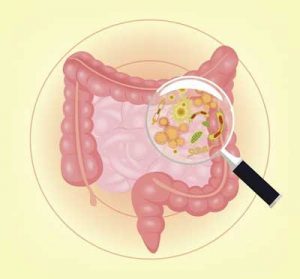- Home
- Editorial
- News
- Practice Guidelines
- Anesthesiology Guidelines
- Cancer Guidelines
- Cardiac Sciences Guidelines
- Critical Care Guidelines
- Dentistry Guidelines
- Dermatology Guidelines
- Diabetes and Endo Guidelines
- Diagnostics Guidelines
- ENT Guidelines
- Featured Practice Guidelines
- Gastroenterology Guidelines
- Geriatrics Guidelines
- Medicine Guidelines
- Nephrology Guidelines
- Neurosciences Guidelines
- Obs and Gynae Guidelines
- Ophthalmology Guidelines
- Orthopaedics Guidelines
- Paediatrics Guidelines
- Psychiatry Guidelines
- Pulmonology Guidelines
- Radiology Guidelines
- Surgery Guidelines
- Urology Guidelines
Preventing Colon Polyps: Another good reason to lose weight

Being over ideal body weight has known risks with respect to heart and blood pressure problems, but the list is growing! Being overweight can lead to the development of the “metabolic syndrome.” This includes resistance to insulin and replacement of the normal liver structure with fatty tissue, among other changes affecting the body. When such changes affect the liver, this is referred to as nonalcoholic fatty liver disease (NAFLD).
In the January issue of Diseases of the Colon & Rectum, researchers from Seoul, Korea, studied nearly 3000 patients undergoing routine physicals over a 6-year period. Patient height, body weight, waist circumference, and blood tests were obtained in all patients. An abdominal ultrasound was also performed in all patients to determine whether or not a fatty liver was present. In addition, all patients underwent colonoscopy.
Using the body mass index (calculated using a patient’s height and weight), results of 2 blood tests (serum triglycerides and a liver blood test), and the patient’s waist circumference, the researchers were able to compute a “fatty liver index.” Nearly one-quarter of patients had metabolic syndrome, and half had fatty liver. Thirty-one percent of patients had a colon polyp, and these polyps were more common in the upper part of the colon. Statistical analyses showed that patients with a BMI > 25, those with a fatty liver, and those older than 60, were at increased risk of having a colon polyp.
A fatty liver index > or equal to 30 was associated with an increased risk of having colon polyps (odds ratio 1.26; 95% confidence interval 1.06-1.49). Thirty-six percent of patients with a fatty liver index > or equality to 30 has colon polyps as compared to 27% of patients with a fatty liver index < 30. This high fatty liver index group also had more polyps, and they were more frequent in the upper colon. One more reason to work on losing those extra pounds!
Citation: Ze EY, Kim BJ, Jun DH, Kim JG, Kan H, Lee DY. The fatty liver index: a simple and accurate predictor of colorectal adenoma in an average-risk population. Dis Colon Rect 2018;61:36-42. (January 2018 issue.)

Disclaimer: This site is primarily intended for healthcare professionals. Any content/information on this website does not replace the advice of medical and/or health professionals and should not be construed as medical/diagnostic advice/endorsement or prescription. Use of this site is subject to our terms of use, privacy policy, advertisement policy. © 2020 Minerva Medical Treatment Pvt Ltd